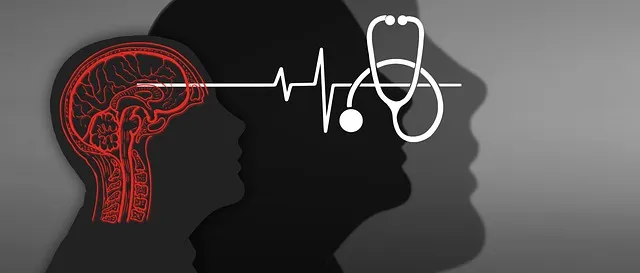Wheat Ridge Kaiser Permanente prioritizes cultural sensitivity in mental healthcare as a key component of patient-centered care. By recognizing and respecting diverse cultural beliefs and behaviors, they adapt services to individual needs, especially critical for addressing mental health issues influenced by cultural identities. Initiatives like Compassion Cultivation Practices and the Mental Wellness Podcast Series demonstrate a commitment to inclusive environments. The dedicated mental health appointment number facilitates tailored care, while training and community engagement ensure professionals are equipped to offer culturally sensitive support. This multi-faceted approach promotes positive patient outcomes by building trusting relationships and encouraging open communication, addressing barriers for marginalized communities.
Cultural sensitivity is a cornerstone of quality mental healthcare, ensuring equitable access and positive patient outcomes. This article explores the vital role cultural competency plays in addressing diverse needs within Wheat Ridge Kaiser Permanente’s (WRKP) mental health services. We delve into the challenges faced by providers when serving a heterogeneous population, highlighting potential barriers to care. Furthermore, we present successful strategies employed at WRKP to enhance cultural sensitivity and share insights on how these practices impact patient satisfaction and clinical results, emphasizing the importance of understanding cultural contexts in modern mental healthcare.
- Understanding Cultural Sensitivity in Mental Healthcare
- Challenges in Providing Culturally Competent Care
- Strategies to Enhance Cultural Sensitivity at Wheat Ridge Kaiser Permanente
- The Impact of Cultural Awareness on Patient Outcomes
Understanding Cultural Sensitivity in Mental Healthcare

In the realm of mental healthcare, cultural sensitivity is a vital aspect that ensures quality and effective treatment for all patients, regardless of their background. It involves recognizing and appreciating the diverse beliefs, values, and behaviors of different cultures, and tailoring care accordingly. This is especially relevant when considering the complex interplay between mental health issues and cultural identities. For instance, a patient from a specific cultural community may have unique perspectives on causes of distress or preferences for therapeutic approaches, which are crucial to understand for accurate diagnosis and treatment planning.
At Wheat Ridge Kaiser Permanente, mental health appointments (accessed through their dedicated number) prioritize cultural sensitivity as a cornerstone of patient-centered care. This includes incorporating Compassion Cultivation Practices, which foster empathy and understanding between healthcare providers and patients from diverse backgrounds. Moreover, the Mental Wellness Podcast Series Production highlights the importance of sharing culturally relevant information and stories to promote self-care practices tailored to various communities. Such initiatives reflect a commitment to creating an inclusive environment where mental health support aligns with cultural values, ultimately enhancing patient outcomes.
Challenges in Providing Culturally Competent Care

Providing culturally competent care within mental healthcare presents unique challenges. One significant hurdle is navigating the diverse spectrum of cultural beliefs and values held by patients, often requiring mental health professionals to adapt their practices accordingly. For instance, a patient from a community that places strong emphasis on familial honor may express feelings of shame or reluctance to discuss certain personal struggles openly. Understanding these nuances demands that healthcare providers, like those at Wheat Ridge Kaiser Permanente, approach each appointment with cultural sensitivity, ensuring a safe and inclusive environment.
Risk Management Planning for Mental Health Professionals plays a pivotal role in addressing these challenges. It involves recognizing potential risks associated with cultural differences and implementing strategies to mitigate them. Through comprehensive training on Healthcare Provider Cultural Competency, mental health professionals can enhance their ability to recognize and respect diverse perspectives, thereby fostering positive thinking and more productive therapeutic relationships. These efforts are essential to ensuring every patient receives care that respects their background and promotes healing in an understanding, non-judgmental manner.
Strategies to Enhance Cultural Sensitivity at Wheat Ridge Kaiser Permanente

At Wheat Ridge Kaiser Permanente, enhancing cultural sensitivity in mental healthcare is a multifaceted approach that begins with Wheat Ridge Kaiser Permanente mental health appointment number accessibility and extends to provider training and community engagement. The organization recognizes the importance of Emotional Well-being Promotion Techniques tailored to diverse cultural backgrounds, ensuring every patient receives care that respects their unique beliefs, values, and experiences. This involves providers learning Emotional Intelligence to better understand and respond to the emotional nuances of different cultures.
Regular Healthcare Provider Cultural Competency Training sessions are organized to equip staff with knowledge about various cultural practices, traditions, and challenges. These workshops foster an environment where mental health professionals can discuss sensitive topics, learn appropriate communication strategies, and develop skills to offer culturally sensitive care. By integrating these initiatives, Wheat Ridge Kaiser Permanente strives to create a welcoming and inclusive space that promotes healing and Emotional Well-being Promotion Techniques for all patients.
The Impact of Cultural Awareness on Patient Outcomes

Cultural awareness plays a pivotal role in enhancing patient outcomes within mental healthcare settings, such as those offered by Wheat Ridge Kaiser Permanente. Understanding and appreciating the diverse cultural backgrounds of patients can significantly improve the quality of care provided. When mental health professionals are attuned to cultural nuances, they create an environment that fosters trust and encourages open communication. This is particularly crucial for individuals from marginalized communities who may face additional barriers to seeking treatment, including the stigma associated with mental illness.
By integrating self-care practices and mindfulness meditation techniques tailored to different cultures, mental health professionals can address unique challenges. For example, recognizing and respecting cultural beliefs about health and healing allows for more personalized treatment plans. This approach not only improves patient satisfaction but also leads to better adherence to treatments, ultimately contributing to positive outcomes. Mental Illness Stigma Reduction Efforts that consider cultural perspectives can effectively empower patients to embrace their mental well-being.
Cultural sensitivity in mental healthcare is paramount for improving patient outcomes and fostering inclusive environments like those offered at Wheat Ridge Kaiser Permanente. By addressing challenges through strategies that enhance cultural competency, as exemplified by their initiatives, mental health professionals can better serve diverse populations. This not only improves access to care but also strengthens the trust between patients and providers. For those seeking mental health support, understanding the cultural sensitivity practices of their healthcare provider, such as Wheat Ridge Kaiser Permanente, can significantly impact the quality and effectiveness of their appointments, represented by the mental health appointment number, ensuring a more personalized and compassionate experience.






